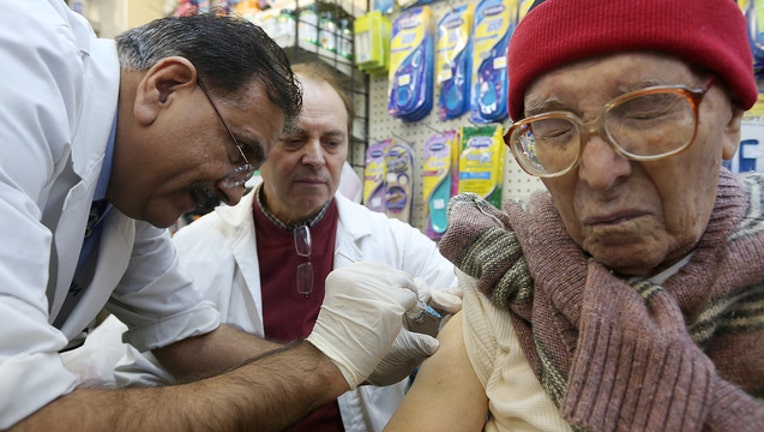University to pay money to those willing to be intentionally exposed to the flu

A chief pharmacist injects a man with influenza vaccine at New York City Pharmacy. (Photo by Mario Tama/Getty Images)
PHOENIX (KSAZ) - A university in Missouri will pay you a lot of money, if you volunteer to be intentionally exposed to the flu!
In a statement released Monday by Saint Louis University, the university has converted part of its former hotel into a research suite to house those who volunteer for the task. The university's new Extended Stay Research Unit will allow the university to conduct what they call "human challenge influenza studies", which officials say is different than the more common flu vaccine clinic trials.
“In a traditional flu study, we vaccinate people and see if their immune systems respond by creating antibodies that fight flu. In a human challenge study, we vaccinate people, then deliberately challenge their bodies by exposing them to flu to see if they get sick,” said Daniel Hoft, the Director of SLU's Center for Vaccine Development.
For the study, university officials say volunteers will be given either a vaccine or placebo, and then intentionally exposed to a strain of the flu. The volunteers will then be quarantined for about 10 days, where the volunteers will be observed and have blood and lung tests, along with nose swabs, to see if they are infected with the flu and shedding the virus. The volunteers will not be allowed to go home until tests show they are negative for infection for two days.
As for the Extended Stay Research Unit, it is described by university officials as having the "trappings of a staycation".
"Common areas with comfy chairs offer spaces to socialize, read or watch TV with picture-window views of the Arch. Catered meals are served in the dining room/kitchen area, and there is exercise equipment for a quick workout," read the statement. There will also be nurses around the clock to monitor and care for the volunteers.
University officials also say volunteers for human challenge studies will typically receive compensation of about $3,500 for their time and travel.

